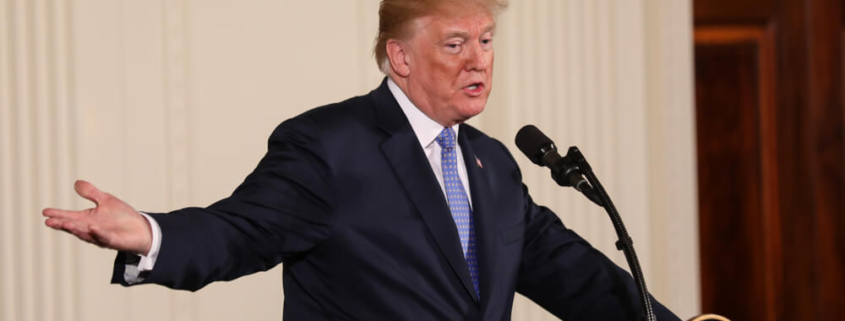Who Will Be Most Impacted by President Trump’s Order Suspending Four Visa Categories?
On June 22, President Donald Trump signed a proclamation that suspends the entry into the United States of nonimmigrants who “present a risk to the labor market” during the economic recovery that follows the COVID-19 outbreak. While this is meant to be a temporary suspension of certain types of visas, the impact of the decision is far-reaching.
Background of Visa Suspensions
On April 22, President Trump issued a proclamation that suspended entry into the U.S. of immigrants who pose a risk to the country’s labor market due to COVID-19. That ban was to last 60 days and did not include nonimmigrant visas.
The new ban not only includes nonimmigrant visas but also extends the April ban. The latest proclamation went into effect on June 24 and is scheduled to expire on December 31, 2020.
The administration clarified its order on June 29. Specifically, anyone who already holds a visa in any of the applicable categories is exempt from the new proclamation. There is always the chance that the order could be extended further.
Who is Impacted By the Latest Order?
The latest order suspends four categories of visas: those for specialty occupations, temporary non-agricultural workers, exchange visitors, and intracompany transferees. Other visas impacted are the ones for the spouses and children of the recipients of each of these visas.
Specialty Occupations (H-1B Visas)
Each year, the U.S. grants 85,000 H-1B visas to “highly skilled” workers, many of whom are in the technology sector. These visas are generally valid for up to six years. In 2019, 188,123 H-1B visas were issued by the department of state, 70% going to Indian citizens, and 15% to Chinese citizens. In May 2020, just 143 of these visas were issued.
Temporary Non-Agricultural Workers (H-2B Visas)
Roughly 66,000 H-2B visas are granted annually for seasonal non-agricultural labor, but more can be issued if the demand warrants an increase. These visas are generally valid for up to three years and are prominent in hospitality, landscaping, and food processing industries. About 74% of the visas issued in 2019 were for Mexican citizens.
Exchange Visitors (J Visas)
The Department of State either issued or renewed just over 353,000 J-1 visas in 2019. These are applicable for educational and cultural exchange, and holders participate in things like being a teacher, trainee, intern, camp counselor, or au pair. Depending on the program, the visas can be valid for up to seven years.
Intracompany Transferees (L-1 Visas)
The Department of State issued nearly 77,000 L-1 visas in 2019. These are available to employees and business owners who have worked for a parent, subsidiary, branch office, or affiliate of a U.S. company outside the U.S. for at least one year out of the last three.
Spouse and Children Visas
The spouses and children of anyone that receives any of these nonimmigrant visas would also be impacted by the latest decision. Some examples are H-4 visas for dependents of H-1B and H-2B visas, J-2 visas for dependents of J-1 visas, and L-2 visas for dependents of L-1 visas. Together these make up roughly 245,000 foreigners who typically accompany spouses and parents to the U.S.
U.S. Businesses Object to the Order
The intent of the government’s proclamation was to preserve and open up opportunities for U.S. workers as the economy recovers in the wake of the coronavirus pandemic. Since mid-March, about 45.5 million workers have filed for unemployment compensation, equaling over a quarter of the U.S. workforce. Unfortunately, economists and business leaders believe that the new policy is likely to do damage instead.
In addition to crippling many industries that rely on these foreign workers, the government’s stance also sends a message to overseas talent is not needed in the U.S. in the future. The decision was widely denounced by industry associations and pro-business groups.
Daniel Costa, an attorney with Washington D.C.’s Economic Policy Institute, states that much of the country’s immigration has already been shut down thanks to the pandemic. In his recent analysis, Costa indicates that banning visas is just another way to “scapegoat immigrants” as the economy moves towards collapse.
Speak With an Immigration Lawyer to Protect Your Rights
It is unclear whether the current guidance will stand up in court, and there’s a strong chance that it will be challenged. The Garmo Group in San Diego has more than 30 years of experience proudly advocating for the rights of immigrants, and our mission is to provide strong legal representation and protect the rights of those who have difficulty navigating the complexities of our immigration system.
If you have questions about your rights or need assistance with an immigration matter, contact us to schedule a consultation. Call 619-441-2500 or reach out online for an appointment.




